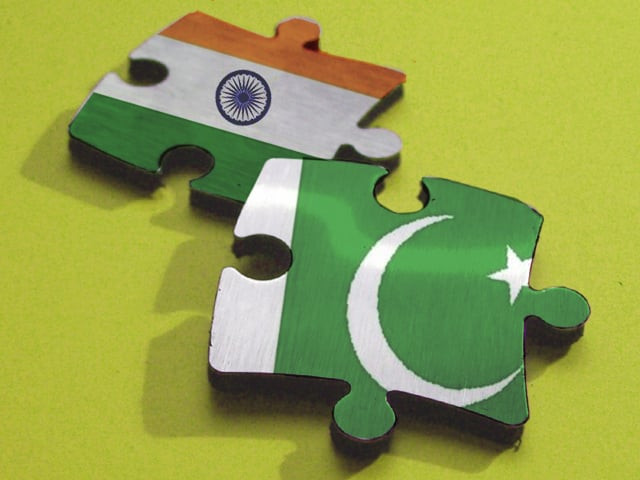Pakistan-India relations and the US
Peace has to come first, then trade and then resolution of the Kashmir dispute.

Ms Nuland echoed Pakistan’s own stance taken during the recent thaw in Indo-Pakistan relations and an unusual progress on matters of bilateral trade. While reciprocating steps taken towards normalisation by New Delhi, Pakistan had also called for “progress on Kashmir and other security-related issues”. She went on to emphasise that the UN and Washington’s policy on Kashmir stayed constant, which recognised it as a dispute. It goes without saying that the US, like most states in Europe, thinks that new agreements on trade and the visa regime between India and Pakistan will lead to peace between the two countries, after which the bilateral ‘conversation’ on Kashmir and other outstanding issues would become meaningful. She made the following remark:
“We have said for some time that we applaud the progress that India and Pakistan have made in their dialogue, particularly on the economic side. We are encouraged that they’ve taken some concrete steps to normalise trade relations, including the recently-signed agreement on visa liberalisation. We want to see this economic warming extend to other areas.”
President Zardari mentioned Kashmir and linked it to the failure of the UN because he had touched base with Pakistani nationalism, which is more military oriented than civilian oriented. However, the fact is that he, too, is part of the forces, along with the PML-N leader, Mr Nawaz Sharif, which have tried to steer the state away from this military-oriented paradigm.
The civilian mind says: first normalise relations and promote the intermeshing of national interests through trade, then approach the disputes which have accumulated over the years because of bilateral hostility. (One has to admit that the ‘core issue’ of Kashmir has been overtaken by half a dozen ‘non-core issues’ that serve as a moat, obstructing approach to the main castle.) Wars have been fought because front-loading disputes have led to inflexibility of stance on both sides. Today, if military thinking is applied to Kashmir, the non-core issues will get in the way. The world agrees with the front-loading of trade and the resultant intermeshing of national interests as a solvent of the core issue of Kashmir. Pakistan’s military approach — whose latest manifestation was called the ‘strategic depth doctrine’ — has done much damage to Pakistan in Afghanistan, by inviting other powers into the region to counter it. Peace with all neighbours, including India, is the motto of Pakistan’s foreign policy today and although the army controls foreign policy, we have reached a point where a consensus is gelling around a trade-first policy, the same way as a consensus on military non-interference in democracy has gelled.
Pakistani elements — some of them in the government — that blame India, the US and Israel for acts of terrorism in the country are doing a disservice to Pakistan by picking enemies that Pakistan cannot confront, let alone defeat. The foolishness of this approach is revealed when it is discovered that this stance is very close to the thinking of al Qaeda that intends to capture the state of Pakistan and establish a khilafat here, with the sole purpose of attacking America in a repeat of the 9/11 attacks.
Knowing how little the world supports us on our stance on the Mumbai attacks of 2008, wisdom demands that we adopt the policy favoured by the two main political parties in Pakistan and give peace a chance with the approval of a grateful world that doesn’t want more wars in South Asia — especially wars that resolve nothing but bring more poverty among its masses. Peace has to come first, then trade and then resolution of the Kashmir dispute.
Published in The Express Tribune, October 8th, 2012.














COMMENTS
Comments are moderated and generally will be posted if they are on-topic and not abusive.
For more information, please see our Comments FAQ